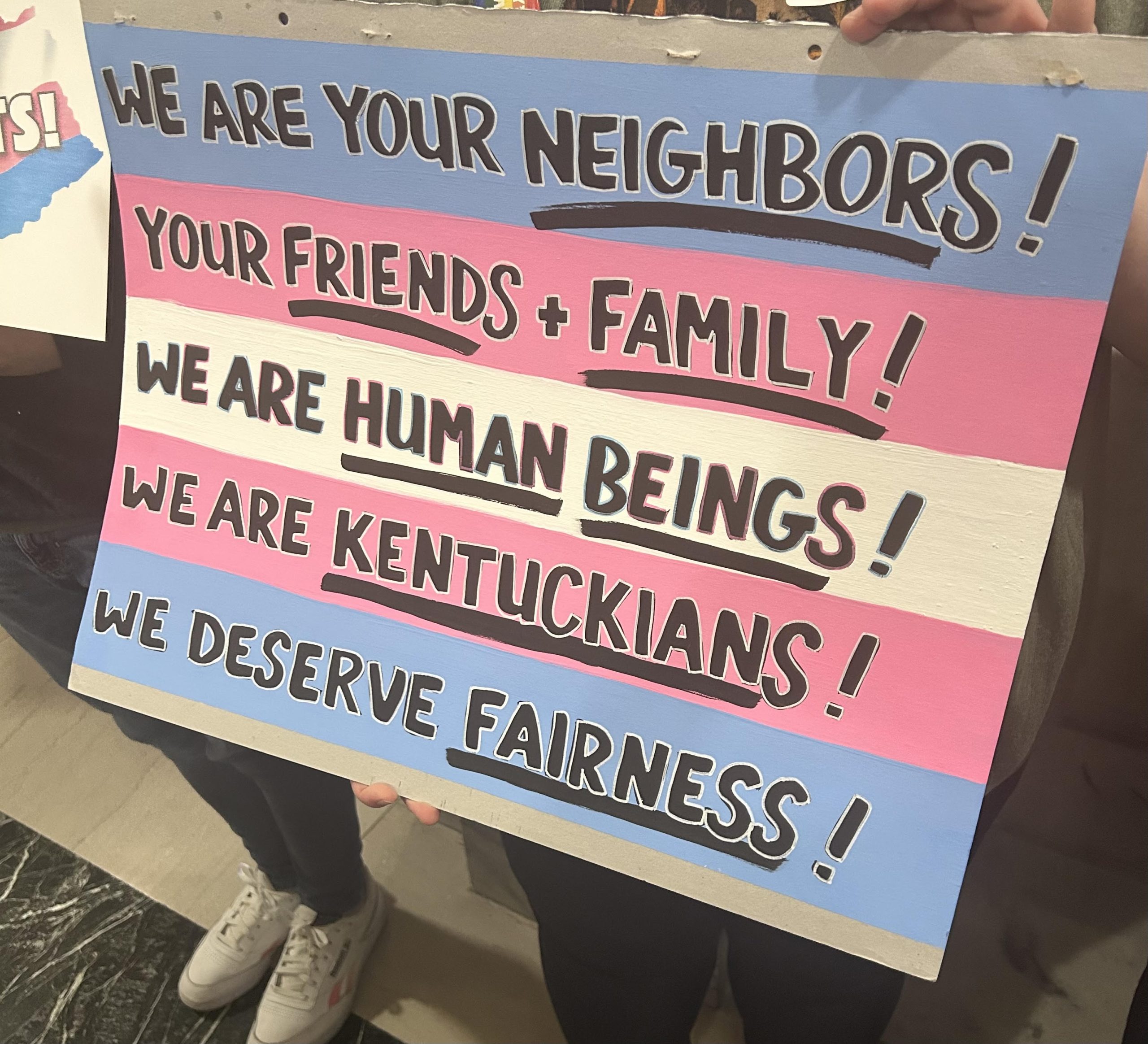
he/him
contact@queerkentucky.com
What happens when a coalition of ultra-conservative state attorneys general sue the federal government for extending civil rights protections to the LGBTQ+ community?
Naturally, a Trump-appointed federal judge rules in their favor.
That’s what transpired late last Friday, when Judge Charles Atchley of Tennessee’s Eastern District blocked a federal directive to expand sex discrimination protections to LGBTQ+ students and workers.

Last year, the Biden administration said sex-based discrimination protections, like those at schools under Title IX and workplaces under Title IIV, extend to gay and transgender individuals, too. This guidance was part of a widespread effort by the White House to overturn or reverse Trump-era policies restricting transgender rights.
As such, companies and schools would not be able to deny transgender people from using bathrooms or playing on sports teams that match their gender identity. The directives also would require schools receiving federal funding to investigate sex discrimination rooted in sexual orientation or gender identity.
That’s why 20 conservative state attorneys general, including Kentucky’s Daniel Cameron, banded together to sue the Department of Education and the Equal Employment Opportunity Commission. The agencies requested to have the case dismissed, which Atchley denied.
“As young women across the Commonwealth work hard to compete in sports they love, we must work to preserve the integrity of women’s sports and ensure an even playing field for girls and young women,” Cameron said to WHAS11. “The federal government’s flawed guidance in this area jeopardizes decades of progress in women’s sports, and I’m grateful that our lawsuit stopped the new guidance from moving forward.”
It is no surprise that Cameron praises the Trump-appointed judge, as he was also in favor of Kentucky’s Senate Bill 83.
Kentucky’s General Assembly passed the discriminatory Senate Bill 83 in February, which sought to “protect the integrity of women’s sports.” This bill was vetoed by Gov. Andy Beshear but was overridden by the General Assembly.

Last week, Atchley issued a preliminary injunction preventing the Biden administration from enforcing these expanded anti-discrimination protections for LGBTQ+ individuals.
He stated that the federal directive “directly interferes with and threatens [these states] ability to continue enforcing state laws,” referring to anti-trans legislation being passed across the country. At least 20 states already have or are seeking to pass legislation restricting access to facilities and sports for transgender people.
However, the notion to include the LGBTQ+ community in such protections is not unprecedented, said Chris Hartman, Executive Director of the Fairness Campaign. Kentucky’s General Assembly passed the discriminatory Senate Bill 83 in February, which intended to “protect the integrity of women’s sports.” It was vetoed by Gov. Andy Beshear but was overridden by the General Assembly.

“The Biden administration is really building upon what the Obama administration did previously to appropriately interpret sex protections to include LGBTQ folks,” Hartman said.
The guidance is also in line with the Supreme Court’s 2020 opinion in Bostock v. Clayton, which says it is unlawful to discriminate against people based on their gender identity or sexual orientation in the workplace. In writing for the majority, Justice Neil M. Gorsuch said “it is impossible to discriminate against a person for being homosexual or transgender without discriminating against that individual based on sex.”
Up until that decision, less than half of the states in the U.S. had anti-dscrimination protections preventing workers from being fired for being gay, bisexual or transgender.
“These directives simply reiterate the Supreme Court’s interpretation of the word sex in federal law, “ said Hartman. “Unfortunately, this Trump-appointed judge in Tennessee has sought to subvert that, but I don’t believe that will ultimately stand.”
According to Judge Atchley, states are being forced to “choose between the threat of legal consequences—enforcement action, civil penalties, and the withholding of federal funding—or altering their state laws to ensure compliance with the guidance and avoid such adverse action.”
But Hartman said those states wouldn’t have anything to lose if they weren’t violating Title IX.
“More than anything, this definitely puts in jeopardy trans student access to fully participate in all aspects of school life on a daily basis, “ said Hartman. “We know that puts trans—and all queer youth across the board—at greater risk overall.”
He says he hopes the courts will ultimately uphold precedence and see the inherent value of each student, including transgender students.
“The only correct ruling is the one that upholds rights to access bathrooms and locker rooms that match your gender identity.”



